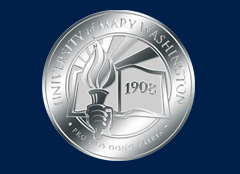Date of Award
Spring 5-6-2024
Document Type
Honors Project
Degree Name
Bachelor of Science
Department
Computer Science
Department Chair or Program Director
Anewalt, Karen
First Advisor
Davies, Stephen
Second Advisor
Zeitz, Jessica
Third Advisor
Chandrasekar, Prashant
Major or Concentration
Computer Science
Abstract
Political candidates in a democracy articulate positions on the issues of the day, but they are also highly aware of voter sentiment on those issues, and tailor their campaigns accordingly as they seek to win elections. Voters, too, adjust their political opinions based on (among other things) interactions with others in their social network. I present an agent-based simulation that models this dynamic interplay between candidates and voters, in order to shed light on what outcomes candidates can expect to result from a policy of “chasing” votes. The voters in the simulation differ from one another in the decision procedure they use in choosing who to vote for – these voting algorithms are modeled on results from the political science literature about the different ways voters make decisions. The model can thus be used to experiment with a virtual electorate, to determine the conditions under which vote-chasing candidates gain an advantage or perhaps even cause the election outcome to be objectively irrational.
Recommended Citation
Peura, Harmony, "The Impact of Heterogeneous Voting Strategies and Candidate Issue Adaptation on Elections: An Agent-Based Model" (2024). Student Research Submissions. 561.
https://scholar.umw.edu/student_research/561

